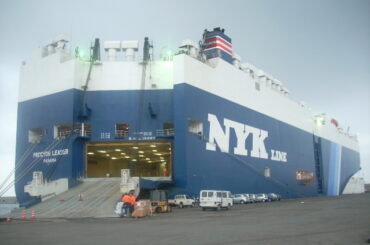Explore a world beneath the waves where intriguing marine careers await your discovery. From unraveling the secrets of underwater ecosystems to preserving marine heritage, these roles offer a glimpse into the fascinating domain of the ocean. Discover how each profession plays an essential role in shaping our understanding and conservation of marine life. Begin a journey where every dive reveals a new chapter in the enchanting narrative of marine careers.
Marine Biologist
Marine biologists study the diverse life forms that inhabit our oceans, from microscopic plankton to massive whales. One fascinating aspect of their work involves delving into marine genetics, exploring the genetic makeup of marine organisms to understand their evolutionary relationships, adaptations, and population dynamics.
Through genetic research, marine biologists can uncover hidden connections between species, track the movement of marine populations, and even aid in conservation efforts.
Another essential tool in a marine biologist’s arsenal is underwater photography. By capturing stunning images of marine life in its natural habitat, biologists can document behaviors, habitats, and species interactions that are otherwise challenging to observe.
These images provide valuable insights into the underwater world, aiding in research, education, and conservation initiatives.
In essence, marine biologists play an important role in unraveling the mysteries of the ocean, using tools like marine genetics and underwater photography to deepen our understanding of marine ecosystems and the creatures that call them home.
Aquarist
As an aquarist, your role revolves around the care and maintenance of aquatic ecosystems within aquarium settings. You’re responsible for creating and maintaining suitable habitats for various marine species, ensuring their health and well-being.
Aquarium design plays an essential role in providing a conducive environment for the fish under your care. Understanding fish behavior is key to designing enriching environments that mimic their natural habitats. By observing their behaviors, you can tailor the aquarium layout to promote their physical and mental stimulation.
In addition to maintaining water quality, filtration systems, and temperature control, aquarists also engage in tasks such as feeding schedules, disease prevention, and managing population dynamics within the aquarium.
Your expertise in aquarium design allows you to create visually appealing displays that showcase the beauty and diversity of marine life. By continuously monitoring and adjusting the aquarium conditions based on fish behavior and environmental factors, you play a significant role in ensuring the well-being of the aquatic organisms in your care.
Dive Instructor
A proficient plunge instructor plays an vital role in guiding individuals through safe and enjoyable underwater experiences. When it comes to scuba safety, these instructors are well-versed in teaching proper diving techniques, emergency procedures, and how to use dive equipment effectively.
They guarantee that divers understand the importance of checking their gear before each dive and emphasize the significance of following established safety protocols underwater.
Dive instructors play an important role in fostering a love for marine life while instilling respect for the underwater environment. Through their guidance, they help students develop essential skills such as buoyancy control, navigation, and communication underwater.
Marine Archaeologist
Steering through the depths of history, a marine archaeologist explores the submerged domains to unearth ancient artifacts and unravel the mysteries of civilizations lost beneath the waves.
Engaged in underwater excavations, these specialists meticulously study historical shipwrecks, piecing together narratives of the past. Utilizing advanced technologies like side-scan sonar and remotely operated vehicles, marine archaeologists survey vast underwater areas, identifying potential sites for exploration.
Once a promising location is identified, the arduous process of excavation begins. Carefully removing sediment and debris, marine archaeologists reveal treasures long hidden beneath the sea.
These artifacts provide valuable insights into seafaring techniques, trade routes, and cultural practices of bygone eras. By analyzing the remains of ancient vessels and their cargo, these experts contribute to our understanding of maritime history and the impact of human activity on the oceans.
In the hands of marine archaeologists, historical shipwrecks transform into windows to the past, offering a glimpse into the lives and events that shaped our world centuries ago.
Oceanographer
Exploring the enigmatic depths of the world’s oceans, an oceanographer investigates the intricate web of marine ecosystems, studying the dynamic interactions between water, organisms, and the environment.
Oceanographers play an essential role in understanding ocean currents, which are like rivers flowing within the ocean, transporting heat and nutrients around the globe. They use advanced technologies like underwater robotics to collect data from remote and deep-sea locations, enabling them to map ocean currents with precision.
Oceanographer’s work involves conducting extensive research on ocean currents to predict weather patterns, understand climate change impacts, and enhance navigation safety.
By studying the movement of water masses, oceanographers can also identify areas of upwelling, where nutrient-rich waters rise to the surface, supporting diverse marine life.
Through their work, oceanographers contribute greatly to our understanding of the ocean’s role in regulating the Earth’s climate and ecosystems, making their profession essential for both scientific advancement and environmental conservation.
Marine Conservationist
In the domain of marine conservation, your role as a marine conservationist is fundamental in safeguarding the delicate balance of ocean ecosystems.
As a marine conservationist, you play a significant role in protecting marine life by focusing on various conservation efforts such as coral restoration and fisheries management.
Coral restoration involves actively rehabilitating coral reefs that have been damaged by factors like pollution, climate change, and overfishing. By participating in coral restoration projects, you help revive these essential ecosystems, providing habitats for countless marine species.
Fisheries management is another important aspect of marine conservation. By implementing sustainable fishing practices, you help guarantee that fish populations aren’t depleted to unsustainable levels.
Through monitoring, research, and policy implementation, marine conservationists work to maintain healthy fish stocks and protect the overall health of marine ecosystems.
Your work as a marine conservationist is critical in preserving the biodiversity and health of our oceans for future generations.
Frequently Asked Questions
How Can I Become a Certified Underwater Welder in the Marine Industry?
To become a certified underwater welder in the marine industry, you must first acquire diving and welding skills. Attend specialized training programs that cover underwater welding techniques. Obtain certification through rigorous testing and hands-on experience to guarantee safety and proficiency.
What Unique Skills Are Required to Work as a Marine Mammal Trainer?
To work as a marine mammal trainer, you need a deep understanding of animal behavior and advanced training techniques. These skills enable you to develop strong bonds with marine mammals, guarantee their well-being, and conduct effective training sessions.
Is Scuba Diving Experience Necessary to Become a Marine Archaeologist?
To excel in marine archaeology, scuba diving experience is essential. It allows you to conduct underwater exploration, document findings, and preserve historical artifacts. This skill enhances your ability to navigate the underwater environment and contribute to archaeological research.
What Are the Key Responsibilities of a Marine Policy Analyst?
To excel as a marine policy analyst, you’ll analyze marine environmental policy, evaluate ocean governance frameworks, and propose strategies for sustainable marine resource management. Your work influences regulations, conservation efforts, and international agreements.
Can Marine Conservationists Specialize in Specific Marine Species for Research?
Yes, marine conservationists can specialize in specific marine species for research. By focusing on a single species, conservationists can deepen their understanding of its behavior, habitat requirements, and threats, allowing for tailored conservation techniques to be developed.







